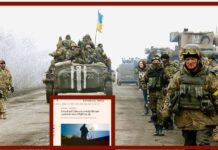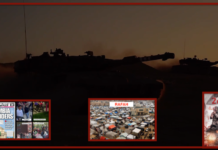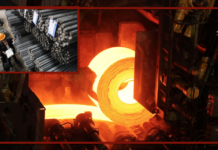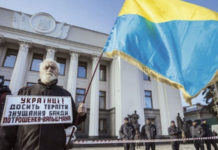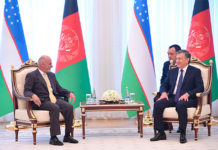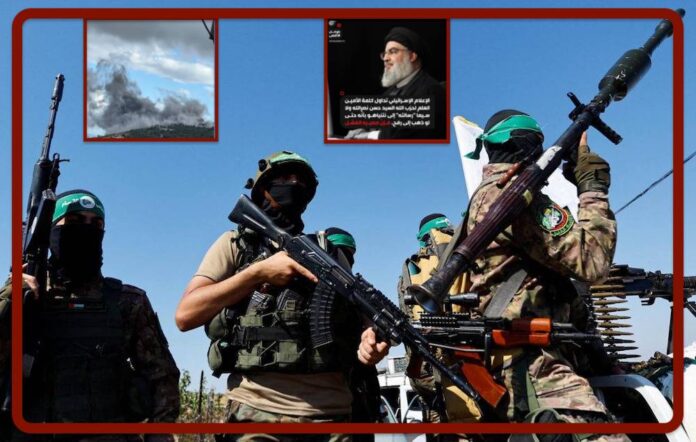
In the social sphere of the Hamas and Hezbollah network there is a lot of talk about the possible opening of the southern Lebanese or northern Israeli front. Hezbollah has so far only “kept” the atmosphere warm. The same points were always hit and in the same way. As if wanting to maintain those agreements with Israel signed before 7 October. Very often Hezbollah has threatened to break those agreements but so far it has not done so.
While as far as the IDF is concerned, they themselves made the tally of Hezbollah targets hit: 4,500 Hezbollah targets hit, mainly in Lebanon but also in Syria.
The IDF estimates that Israeli strikes have killed more than 300 Hezbollah fighters, including five senior commanders, and wounded 750 others. Over the past five months, the Northern Command has carried out air strikes against more than 1,200 targets and another 3,100 ground targets using artillery and tanks.
The targets included weapons depots, buildings used by Hezbollah for attacks, more than 150 observation posts along the border, approximately 70 command centers where Hezbollah and allied men were gathered, more than 50 major missile launch sites and dozens of units using anti-tank missiles.
Also hit were more than 450 sites belonging to Hezbollah’s elite Radwan unit, which Israel believes is tasked with potentially infiltrating Israel. The IDF notes that some of Hezbollah’s 4,500 targets were in Syria.
The IDF says its “intensive attacks” against Hezbollah are damaging “air and ground capabilities, as well as its high command.” “The IDF is constantly working to remove Hezbollah forces and its systems from southern Lebanon and has carried out significant attacks in the area,” the military said. The IDF recently stepped up attacks on Baalbek in northeastern Lebanon, a Hezbollah stronghold.
Let us remember that in this area there are also Hezbollah’s drug factories which export from Lebanon throughout the Middle East and then to Europe.
The IDF says it is also “well aware of the great and ongoing difficulties of northern residents,” who have been forced to abandon their homes due to Hezbollah’s daily attacks. The military “appreciates the resilience demonstrated by residents” and is “committed to continuing to act for good and stable security,” he said.
Yet despite this Hezbollah and the Houthi and Hamas leaders have always claimed that they have not yet used their war potential – and this may not be true, they can however count on an active ally for the supply of bullets and weapons: Iran which supplies weapons and can still count on a partially active ally, Turkey which at the same time – according to the social sphere – supplies weapons to Israel and weapons to Hamas. Finally, a passive and strategic ally, Russia, which knows everything but remains silent because it is at odds with Israel over the training and weapons supplied to Kiev. In this context, perhaps the Israeli government should think carefully about whether it is truly ready to open Pandora’s box.
Speaking on March 13th was Hezbollah number one Sayyed Hassan Nasrallah who, despite having always said he was ready to support Hamas, does not want to open a new front: “We have entered the sixth month of confrontation with the aggression in Gaza and on the support fronts in Lebanon, Yemen and Lebanon. The enemy’s top experts admit strategic losses and today, in the sixth month, Netanyahu stands up and declares that if we don’t go to Rafah, we will lose the war.”
“We tell Netanyahu that even if you go to Rafah, you will lose the war and will not be able to destroy Hamas or the resistance in Gaza, despite all the massacres. All the Palestinian factions are united, and here Hamas is negotiating on behalf of all of them, and they are all united, and the will of Gaza also wants an end to the aggression. Hamas negotiates on behalf of all resistance factions, but rather on all resistance fronts, and does not negotiate from a position of weakness, but rather imposes conditions.”
At the same time the IDF Complaints Commissioner, Brigadier General Rachel Tevet Wiesel, submitted to the Minister of Defense an annual report for 2023, which covers, among other things, the first three months of the war, from October at the end of December.
According to this report, during these months, the receipt of requests from reservists to the IDF increased by 265% compared to the same period last year. Furthermore, there has been a 100% increase in the acceptance of other population groups, such as civilians, who would not normally turn to the Commission.
Many inquiries received by the commission revealed that the IDF does not have a regular policy regarding the treatment of spouses of soldiers killed in war. With the outbreak of hostilities, the commission also received confessions from soldiers of the regular army and reservations about the shortcomings of military equipment in various units: lack of combat equipment, body armor, uniforms, winter equipment, tents, dry closets and other things.
The commission worked in collaboration with the IDF’s technology and logistics department to ensure that all deficiencies are corrected. Another striking example is the gaps in the protection of IDF bases: inquiries about the lack of protected areas in military units began to arrive. After clarifying the matter, it turned out that due to the large-scale mobilization of reserves at the beginning of the war, there were bases where there was not enough space for all guard soldiers – and only then were guards installed additional.
Antonio Albanese e Graziella Giangiulio


